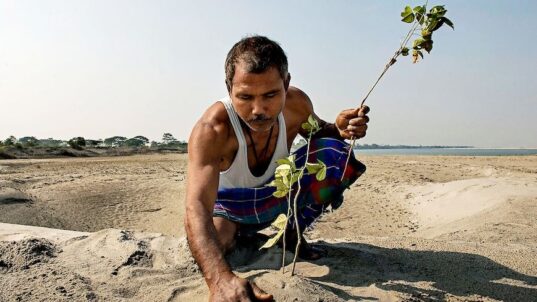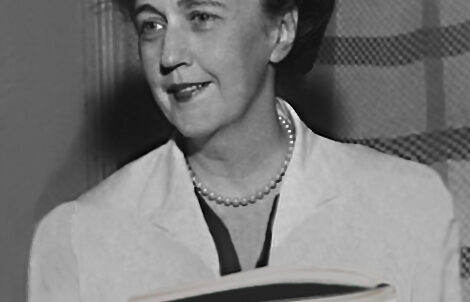
What comes to mind when you think of democracy? What kinds of concerns come to mind when you think about what it takes to be a healthy democratic society? These were the basic questions that animated the third of our four-part community conversation series “Toward a More Perfect Union.” Below you’ll find a summary of the discussion. At the links, you can look back at our first session, exploring concerns surrounding participation in democracy, and our second session, exploring the role of information in a democracy.
In our fourth and final session (February 24th, 4pm-5:15 ET) we’ll be looking forward to think about what an optimal future for democracy might look like–and how might we get there. We’ll share our different optimal visions of a healthy self-governing society. Imagine a point in the future where we reach what you think is an ideal democracy. What is it like? How does it work? Once we sketch out our visions of optimal futures for democracy, we’ll help each other think about how we might reach those futures. What are some different pathways we could take to enact those visions of an ideal or optimal democratic society? You can join us (it’s free!) to share your vision by registering here.
1. When I think of democracy, I think of…
- A community that functions together, where everyone contributes—like a family where everyone comes together and plays a role
- An approach of engaging with other people to make something happen for the greater good
- A society based on the sense that our well-being is interconnected
- A society organized around shared prosperity and wellbeing
- An ideal or set of ideals
- Learning to compromise, to practice reciprocity, to live and let live
- Learning to govern yourself—as an individual, as a group, as a society
- A form of government that is of, by, and for the people
- A form of government and social organization with institutions or components that are themselves democratic
- A system of governance with equal representation and distributed power: one person, one vote
- Elected representatives who represent interests of the whole community or nation, not just of their supporters or special interests
- A process for choosing leaders and a method of managing change peacefully, including the peaceful transfer of power
- A sensitive balance and tension among competing philosophies—where there’s no perfect balance
2. What are some different concerns about the essential features of a healthy democratic society?
Concerns about values, rights, responsibilities, civic virtues
- Equality
- Equal dignity and worth of all persons
- Equal rights to fully participate in the society
- Equal justice under the law
- Equal representation (one person, one vote)
- Repair and avoidance of inequalities (racial, economic, etc.), since these threaten democracy
- Majority rule and the belief that public decisions should conform to the popular will
- An ethos of public spiritedness
- Public servants need to focus on the common good over private interests (or over just the interests of one set of voters)
- Citizens also need to think of the greater good in their actions and decisions
- Freedom to participate as a citizen—to vote, to engage in the community, to take political action, to form or join a political party or action group
- Freedom to have a voice, to speak up, to express yourself, to think for yourself
- Freedom to assemble, to associate with others peacefully
- Responsibility to participate as a citizen, to vote, to engage on public matters, to contribute to the good of the society
- Freedom of the press, embracing the free flow of information
- Justice—seeking to do good for society by good means, not power for its own sake or where the ends justify the means
- Freedom from fear, including fear of one’s government or fellow citizens (being empowered to talk or move freely in society)
- A healthy democracy relies on a sense of institutional ethics as well as personal ethics (we need to attend to the ways that institutions shape individuals’ ethics)
- An ethos of peacefulness, social concord, non-violence, a friendly or generous spirit toward others
- Other cultures embrace a more cooperative spirit to the world—perhaps western political culture could learn from this (emphasizing radical individuality poses risks for the health of a democracy)
Concerns about education and democracy
- A healthy democracy needs to educate citizens to practice the key democratic values or virtues listed above
- A healthy democracy needs an educated public with critical thinking skills to evaluate information, understand political arguments, to make democratic choices, and to govern their own lives
- A healthy democracy needs some shared sense reality and of a reality-based history of the nation
- Citizens need a basic level of democratic literacy, with an understanding of governance and of their democratic rights and responsibilities
- Citizens need to be educated for participation in a way that includes democratic habits and skills, such as how to collaborate and reach compromises (not just shouting at each other)
- Neglecting and underfunding education of all citizens may seem workable in the short term, but it will eventually lead to social unrest
- Education is the yeast that activates opportunity in the “bread” of society
- High quality educational opportunities should be open to all citizens, regardless of their economic status
Concerns about information and democracy
- A healthy democracy depends on citizens having good information in order to make decisions about the society
- Information bubbles and silos weaken the health of a democracy
- News and information media have a responsibility for the good of the society—to better inform the public and not just to seek economic and partisan advantage
- Open and free-flowing, respectful conversations are key for a healthy democracy
- Technology can provide answers (e.g. making information more accessible to more people) and challenges for democracy (e.g. when it is used to target a group with misleading information or with the intent to inflame one group against another)
- (We covered this topic in more detail in the second session. You can read more here).
Concerns about social divisions and social cohesion
- Social hierarchies are toxic for the health of a democracy (you can’t have a group thinking they are superior or oppressing other groups as inferior)
- A healthy democracy can’t have racially excluded communities
- Systemic racism is an obstacle to democracy that needs to be addressed
- Group disparities have to evened out—with equal opportunities to participate fully in the society
- A healthy democracy needs to focus on “equity” and not just “equality”—redressing the effects of historical and systemic barriers to full participation in the society
- Divisive politics that inflames people against others weakens democracy
Concerns about participation in a democracy
- The participation of citizens by voting, public discourse, community engagement, etc. is essential for a healthy democracy
- A healthy democracy makes robust participation easier, rather than raising barriers (making it easier to vote, not harder, eliminating voter suppression, etc.)
- A healthy democracy has layers of participation—from how we participate in our families, workplaces (e.g. unions as a way to improve democracy in the workplace), neighborhoods
- (We covered this topic in more detail in the first session. You can read more here).
Concerns about law and the legal structures of democracy
- A healthy democracy needs a foundational structure (e.g. a constitution) that spells out how the democracy works, the limits to government power, along with basic inalienable rights and responsibilities for society members
- The overall structure needs to provide equal representation (one person, one vote, proportional representation) of citizens (e.g. eliminating gerrymandering)
- A healthy democracy could include more opportunities for direct democracy or citizen direct participation in policy-making
- The basic structure should support compromise and block abuses of power or anti-democratic tendencies (checks and balances)
- The structure should support majority rule (getting rid of anti-majoritarian features like the electoral college, the filibuster, and perhaps even the Senate)
- The structure should embrace the rule of law and the common good (not the rule of persons or seeking private interests)
- A healthy democracy should have a transparent and just legal system that is impartial and that treats all as equal
- A healthy democracy can benefit from having multiple political parties and organizations that offer alternative perspectives and policy proposals
- A healthy democracy benefits from a spirit of cooperation and respectful engagement across political parties or organizations (perhaps more evident in a system with more than two major parties)
Concerns about economics and democracy
- Large wealth and income inequalities are a challenge to democracy, undermining social cohesion and a sense of equality
- If people are left out of economic opportunities, they will grow disaffected from the society, which hurts democracy
- A healthy democracy needs some sense of equal sharing, taking care of all—such as paying attention to the quality of education for all members of the society (racism has proven to be a barrier to this in the US)
- The health of a democracy will depend on how universal access is to economic goods that are the basis of a modern society: jobs with living wages, affordable housing, affordable healthcare, education, etc.
- Money corrupts the political process, as when campaign fundraising steers public policy toward special interests
- If we imagine a spectrum from communism to capitalism, with different levels of “socialism in between, what economic system leads to the healthiest democracy?
- The US has steered toward the pure capitalism end of the spectrum
- There are concerns that this has led to high levels of economic inequality in the US, which threatens to undermine our social cohesion
- Social democracies (as in Scandinavia) pay higher taxes, but have more equal opportunities across society, more security about meeting economic needs, better outcomes for citizens’ wellbeing, and greater levels of happiness
- A social democracy can give everyone equal input into governing choices and making sure needs of the whole population are met
- These different choices seem cultural (different countries, different values)
- In a democracy the budget should be a moral statement, an expression of the people’s values, not geared to special interests
Concerns about taxation and democracy
- A healthy democracy needs a proportionate and equitable form of taxation
- Taxation is democratic—it is needed for the orderly funding of things that the citizenry decide will benefit the common good
- Taxation is what enables democratic governance—it is the engine that invests in the good of society by democratic means
- Taxation should provide the funding for the things that are the basis of a modern democratic society (affordable education, healthcare, etc.)
- Taxation is the opposite of philanthropy, which depends on the whims of the wealthy rather than on the decisions of the citizens
- A healthy democracy needs tax structures that focus on equity and fund public goods (like education) in a way that redresses past harms (e.g. create a funding model for schools that does not depend on property taxes, which perpetuate inequalities in education)
Concerns about the military and democracy
- A healthy democracy depends on civilian control of the military—where the interests of the military are subordinate to the interests of the society as a whole (not the over way around)
- There’s a risk to the health of a democracy when the military budget outweighs the rest of the budget
- There’s a risk to the health of a democracy if the military is or becomes the main institution for the population to seek opportunities for economic and social advancement



